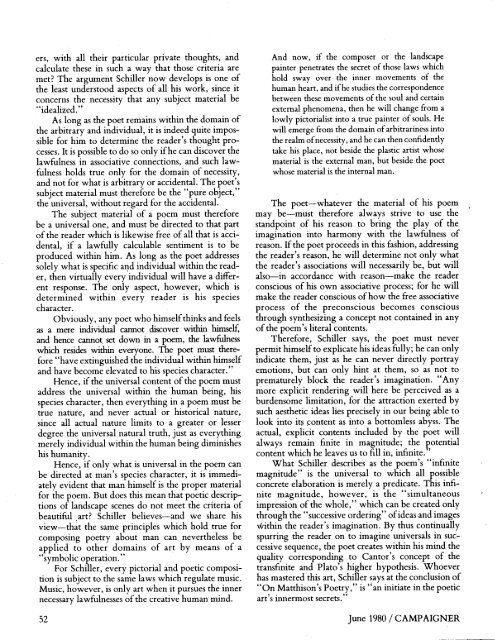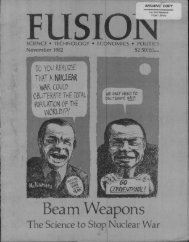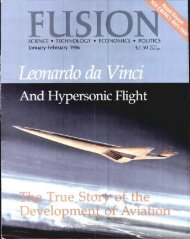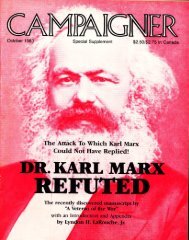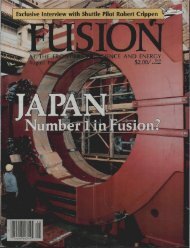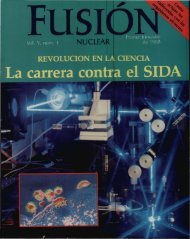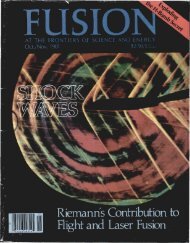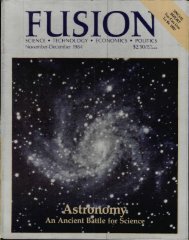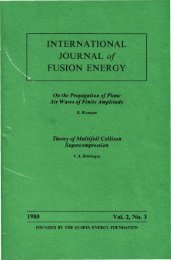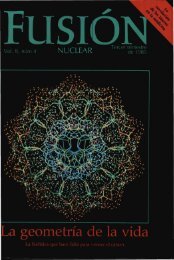Campaigner
Campaigner
Campaigner
Create successful ePaper yourself
Turn your PDF publications into a flip-book with our unique Google optimized e-Paper software.
ers, with all their particular private thoughts, and And now, if the composer or the landscape<br />
calculate these in such a way that those criteria are painter penetrates the secret of those laws which<br />
met? The argument Schiller now develops is one of hold sway over the inner movements of the<br />
the least understood aspects of all his work, since it human heart, and if he studiesthe correspondence<br />
concerns the necessity that any subject material be between these movements of the soul and certain<br />
"idealized."<br />
external phenomena, then he will change from a<br />
As long as the poet remains within the domain of lowly pictorialist into a true painter of souls. He<br />
the arbitrary and individual, it is indeed quite impos- will emerge from the domain of arbitrariness into<br />
sible for him to determine the reader's thought pro- the realm of necessity,and he can then confidently<br />
cesses. It is possible to do so only if he can discover the take his place, not beside the plastic artist whose<br />
lawfulness in associative connections, and such law- material is the external man, but beside the poet<br />
fulness holds true only for the domain of necessity, whose material is the internal man.<br />
and not for what is arbitrary or accidental. The poet's<br />
subject material must therefore be the "pure object,"<br />
the universal, without regard for the accidental. The poet--whatever the material of his poem<br />
The subject material of a poem must therefore may be--must therefore always strive to use the<br />
be a universal one, and must be directed to that part standpoint of his reason to bring the play of the<br />
of the reader which is likewise free of all that is acci- imagination into harmony with the lawfulness of<br />
dental, if a lawfully calculable sentiment is to be reason. If the poet proceeds in this fashion, addressing<br />
produced within him. As long as the poet addresses the reader's reason, he will determine not only what<br />
solely what is specific and individual within the read- the reader's associations will necessarily be, but will<br />
er, then virtually every individual will have a differ- also--in accordance with reason--make the reader<br />
ent response. The only aspect, however, which is conscious of his own associative process; for he will<br />
determined within every reader is his species make the reader conscious of how the free associative<br />
character, process of the preconscious becomes conscious<br />
Obviously, any poet who himself thinks and feels through synthesizing a concept not contained in any<br />
as a mere individual cannot discover within himself, of the poem's literal contents.<br />
and hence cannot set down in a poem, the lawfulness Therefore, Schiller says, the poet must never<br />
which resides within everyone. The poet must there- permit himself to explicate his ideas fully; he can only<br />
fore "have extinguished the individual within himself indicate them, just as he can never directly portray<br />
and have become elevated to his species character." emotions, but can only hint at them, so as not to<br />
Hence, if the universal content of the poem must prematurely block the reader's imagination. "Any<br />
address the universal within the human being, his more explicit rendering will here be perceived as a<br />
species character, then everything in a poem must be burdensome limitation, for the attraction exerted by<br />
true nature, and never actual or historical nature, such aesthetic ideas lies precisely in our being able to<br />
since all actual nature limits to a greater or lesser look into it.s content as into a bottomless abyss. The<br />
degree the universal natural truth, just as everything actual, explicit contents included by the poet will<br />
merely individual within the human being diminishes always remain finite in magnitude; the potential<br />
his humanity,<br />
content which he leaves us to fill in, infinite."<br />
Hence, if only what is universal in the poem can What Schiller describes as the poem s "infinite<br />
be directed at man's species character, it is immedi- magnitude" is the universal to which all possible<br />
ately evident that man himself is the proper material concrete elaboration is merely a predicate. This infifor<br />
the poem. But does this mean that poetic descrip- nite magnitude, however, is the "simultaneous '<br />
tions of landscape scenes do not meet the criteria of impression of the whole," which can be created only<br />
beautiful art? Schiller believes and we share his through the"successiveordering"ofideasandimages<br />
view that the same principles which hold true for _ithin the reader's imagination. By thus continually<br />
composing poetry about man can nevertheless be spurring the reader on to imagine universals in sucapplied<br />
to other domains of art by means of a cessive sequence, the poet creates within his mind the<br />
"symbolic operation." quality corresponding to Cantor's concept of the<br />
For Schiller, every pictorial and poetic composi- transfinite and Plato's higher hypothesis. Whoever<br />
tion is subject to the same laws which regulate music, has mastered this art, Schiller says at the conclusion of<br />
Music, however, is only art when it pursues the inner "On Matthison's Poetry," is "an initiate in the poetic<br />
necessary lawfulnesses of the creative human mind. art's innermost Secrets."<br />
52 June 1980 / CAMPAIGNER


